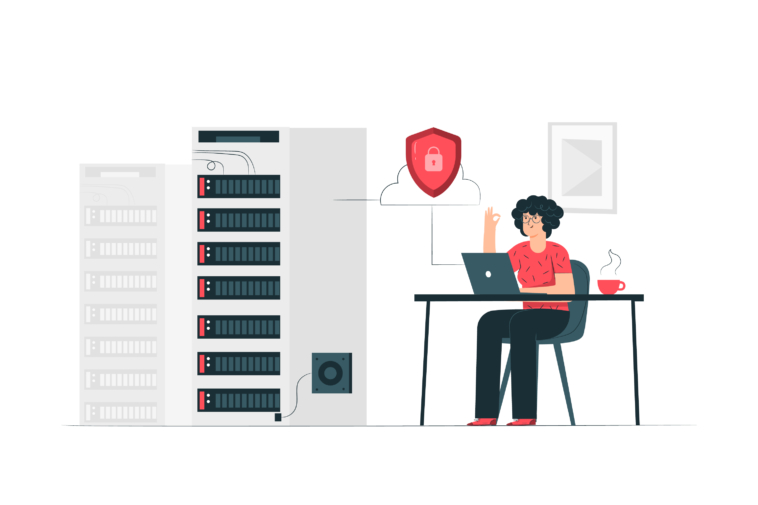In the vast digital landscape, the security server is a sentinel, guarding businesses against potential threats. But what exactly is this guardian, and how does it fortify the digital walls of your enterprise? Here unravel the mystery.
Decoding the Security Server
At its core, a secured server is a specialized server dedicated to managing and enforcing security protocols within a network. Picture it as a vigilant watchman, always on the lookout, ensuring that only authorized personnel can enter a building while keeping potential threats at bay.
This dedicated role allows the secured server to focus solely on safeguarding the network, enhancing its efficiency in identifying and mitigating risks. As cyber threats become more sophisticated, having a dedicated, secured server becomes crucial for businesses to maintain a strong defense against potential breaches and attacks.
The Digital Moat: Firewall Protection
A secured server’s primary role is to act as a firewall, filtering incoming and outgoing traffic. This ensures that malicious entities, like hackers or malware, are kept out. It’s akin to a moat around a castle, where only the drawbridge allows controlled access, keeping potential invaders at a distance.
By establishing a barrier between the internal network and the external world, the secured server prevents unauthorized access and keeps sensitive data safe from prying eyes. This layered approach to security ensures that even if threats breach one defense layer, they are met with another line of defense provided by the secured server.
Micro Focus states, “Integrate access control and improve security.”
The Guardian of Data: Encryption and Authentication
Data is the lifeblood of modern businesses. A secured server ensures this data is encrypted, turning it into a complex code that’s nearly impossible to decipher without the right key. Additionally, it verifies the identity of users, ensuring only those with the right credentials can access the data.
Think of it as a vault with a combination lock, safeguarding your business’s treasures. This dual approach of encryption and authentication ensures that even if unauthorized individuals gain access, the encrypted data remains unreadable and unusable.
Constant Vigilance: Real-time Monitoring and Alerts
A secured server is always alert, monitoring network activity in real-time. If it detects any suspicious activity, it springs into action, either blocking the threat or alerting the IT team. It’s like having a security camera system that records and actively responds to potential threats.
This proactive stance allows businesses to detect and neutralize threats before they can cause significant damage, minimizing the potential impact of cyberattacks.
Adapting to New Threats: Regular Updates
The world of cyber threats is ever-evolving, with new challenges emerging daily. A secured server is equipped to receive regular updates, ensuring it’s always prepared for the latest threats. It’s similar to training a guard dog to recognize and respond to new threats, ensuring the safety of the premises.
These updates include patches for known vulnerabilities and improvements in threat detection algorithms, keeping the secured server’s defenses up to date against emerging risks.
A secured server is more than just a piece of hardware; it’s a comprehensive system designed to protect, detect, and respond. In the digital age, where threats can emerge from any corner of the globe, having such a guardian becomes indispensable.
So, as businesses continue to expand their digital footprint, it’s crucial to have a robust, secured server in place. It ensures the smooth operation of daily tasks and provides peace of mind, knowing that the digital realm of the business is secure. After all, in the grand scheme of business operations, security isn’t just a luxury; it’s a necessity.

